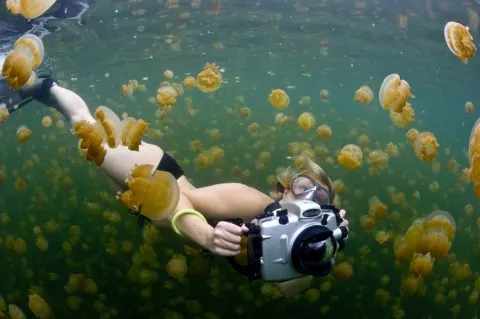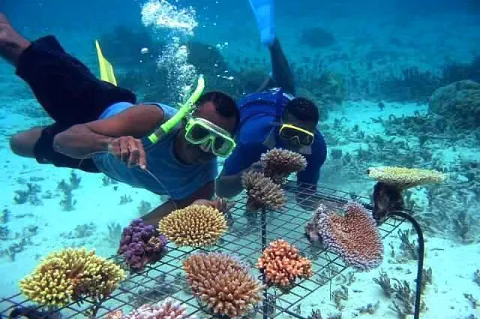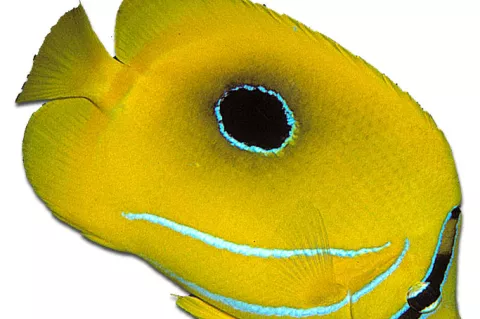Palau Pleasures: A Photographer's Playground
Appearing like nebulous emeralds adrift over an expanse of a deep blue ocean, Palau is richly endowed with some of the world’s most stunning and unique terrain above and below the sea. Geologically, the islands are pinnacles of an undersea ridge of volcanic mountains, part of the “Pacific Ring of Fire” known for its violent subterranean activity.





